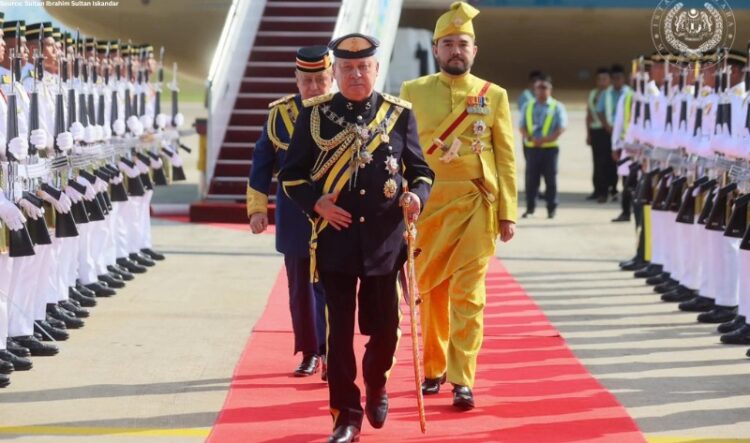Malaysia’s Sultan Ibrahim from the southern state of Johor was installed as the country’s 17th king on Wednesday, taking the oath of office in a ceremony at the national palace in Kuala Lumpur.
The monarchy plays a mostly ceremonial role in Malaysia, but its influence, opening a new tab has grown in recent years, prompting the king to wield rarely-used discretionary powers to quell political instability.
Under a unique system of monarchy, the heads of Malaysia’s nine royal families take turns to be the King, known as the “Yang di-Pertuan Agong” every five years.
Sultan Ibrahim, 65, succeeds Al-Sultan Abdullah Sultan Ahmad Shah, who is returning to lead his home state of Pahang after completing his five-year tenure as king.
While the monarchy is largely seen as above politics, Sultan Ibrahim has been noted for his forthrightness and outsized personality, often weighing in on the country’s political issues.
Known for his large collection of luxury cars and motorbikes, Sultan Ibrahim has wide-ranging business interests from real estate to mining, including a stake in Forest City – a $100-billion China-backed land reclamation and development project off Johor.
Ahead of his installation, Sultan Ibrahim told Singapore’s The Straits Times newspaper he intends to be an active monarch and proposed that Malaysia’s state oil firm Petroliam Nasional and the country’s anti-corruption agency report directly to the king.
He also spoke of his plans to revive a stalled high-speed rail link project between Malaysia and Singapore, with a border crossing through Forest City.
Prime Minister Anwar Ibrahim later downplayed the statements, saying all opinions can be discussed without disregarding the federal constitution, state media reported.
Sultan Ibrahim takes on his duties as king amid renewed political tensions in Malaysia.
The country has seen ongoing political turmoil since 2018 when the then-ruling Barisan Nasional coalition was ousted from power for the first time since independence, prompting the monarch to play a greater role.
The king largely acts upon the advice of the prime minister and the cabinet but is granted a few discretionary powers under the federal constitution, including the authority to appoint a premier he believes commands a parliamentary majority.
Sultan Ibrahim’s predecessor, Al-Sultan Abdullah, exercised such power three times to resolve political uncertainty during his reign, twice after governments collapsed and the latest in 2022, when he appointed Anwar following an election that ended in a hung parliament.
Before stepping down from the throne, Al-Sultan Abdullah called for political stability, responding to media reports this month of an alleged plot to topple the government. Several opposition and ruling bloc leaders have denied being part of the plot.









